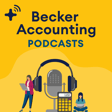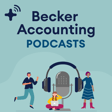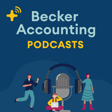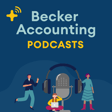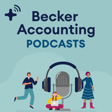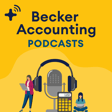
Cool Careers in Accounting Ep. 6 - Money Talks: From Accounting to Investments with Nate Palmer
It’s not every day that you come across $1.7 billion. But for Portfolio Manager, Nate Palmer, this is his everyday number. Nate joins us to share his career journey from CPA to Portfolio Manager at a multibillion-dollar asset management firm, where he runs a long-short fund that creates revenue through smart investments. Learn from his experience building a career in his area of interest, constantly learning new skills to advance his opportunities.
Earn CPE by listening to this podcast through a Becker Prime CPE subscription.
Listen to this episode through your Becker LMS platform to complete practice questions, pass the final exam, and earn CPE credit.
Already a Becker Prime CPE customer? Login here.
Have access to Becker CPE through your employer? Earn CPE credit for this podcast however you consume Becker CPE, either through your company’s LMS or via the Becker platform. Not sure where to log in? Check with your CPE admin.
Learn more about CPE Podcasts from Becker: https://www.becker.com/cpe/becker-podcasts
